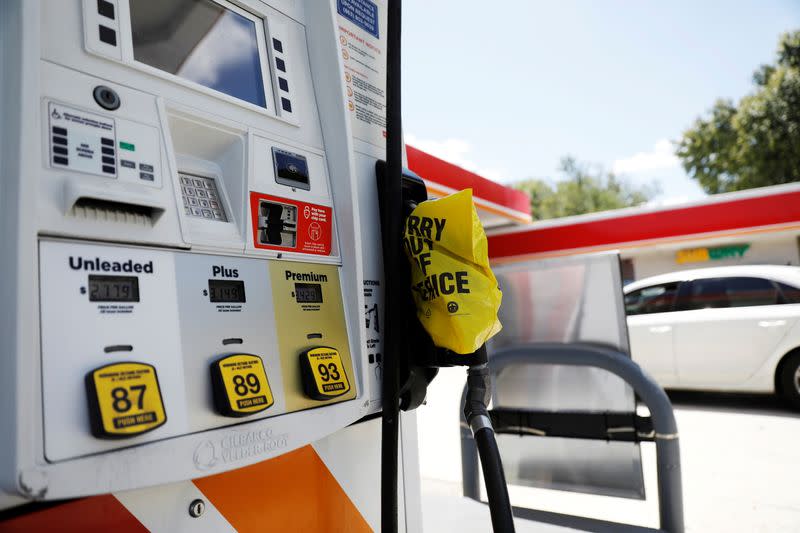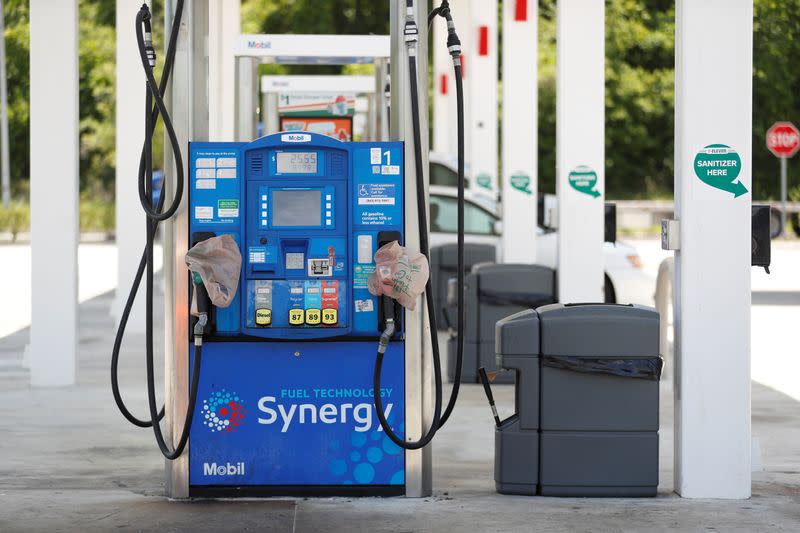By Jennifer Hiller and Stephanie Kelly
(Reuters) -Widespread gasoline shortages along the U.S. East Coast began to ease slightly on Saturday as the operator of the nation's biggest fuel pipeline said it was back to delivering "millions of gallons per hour" following last week's cyberattack.
Ships and trucks were deployed to fill up storage tanks after the six-day Colonial Pipeline shutdown, the most disruptive cyberattack on record, triggered widespread panic buying that left filling stations across the U.S. Southeast dry.
"We have returned the system to normal operations, delivering millions of gallons per hour to the markets we serve," said the company, which had begun gradual restart of the pipeline on Wednesday.
More than 13,400 gas stations surveyed in the east and south by fuel tracking app GasBuddy were experiencing outages on Saturday, down from 16,200 early the previous day.
On Saturday evening, about 75% of gas stations in Washington, D.C. were still without fuel, an improvement from Friday's figure of 88%, the app showed. Shortages also eased in North Carolina and Virginia, but were about the same in Georgia.
U.S. gasoline demand dropped 12.6% from the previous week, probably due to an easing of "crazed" panic buying just after the pipeline shut, said Patrick De Haan, head of petroleum analysis at GasBuddy.
The nationwide average for a gallon of regular unleaded was $3.04 on Saturday, from $2.96 a week ago, according to AAA.
The pipeline outage accelerated increases in gasoline prices that were "already rising due to higher crude prices and demand ahead of Memorial Day," said AAA spokeswoman Ellen Edmonds.
She was referring to the May 31 holiday that traditionally kicks off the U.S. summer driving season.
Places served by the pipeline saw the biggest price jumps this week - with Georgia and the Carolinas up 20 cents per gallon or more - but they should also see prices decline again as supplies improve, Edmonds said.
Florence, South Carolina had the nation's biggest price increase at 30 cents, while prices rose 9 cents in D.C.
Ships deployed under emergency waivers were also moving fuel from U.S. Gulf Coast refiners to the northeast, while 18-wheel tanker trunks were ferrying gasoline from Alabama to Virginia, helping to stem the shortages.
U.S. crude prices could edge higher as refiners process more oil to catch up from the gasoline storage that was drawn down while the pipeline was shuttered, said Robert Yawger, analyst at Mizuho Securities.
The approach of Memorial Day helps make "the sense of urgency supersized" for refiners, Yawger added.



